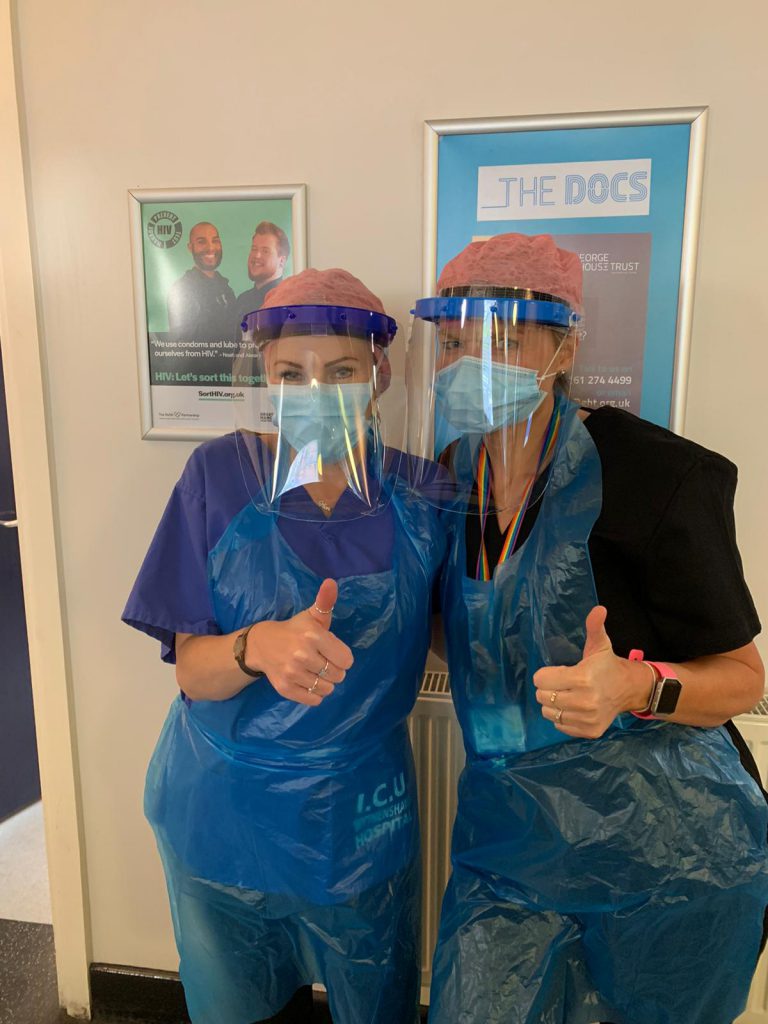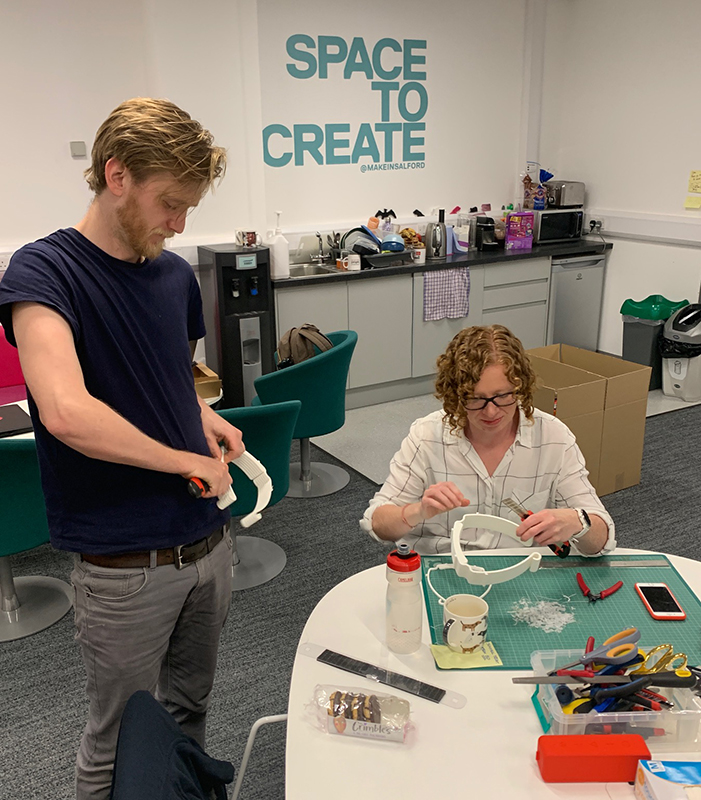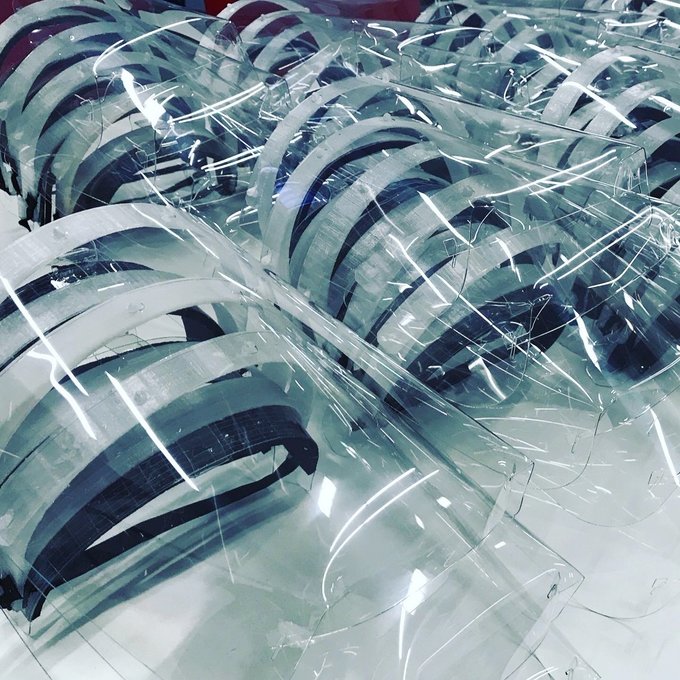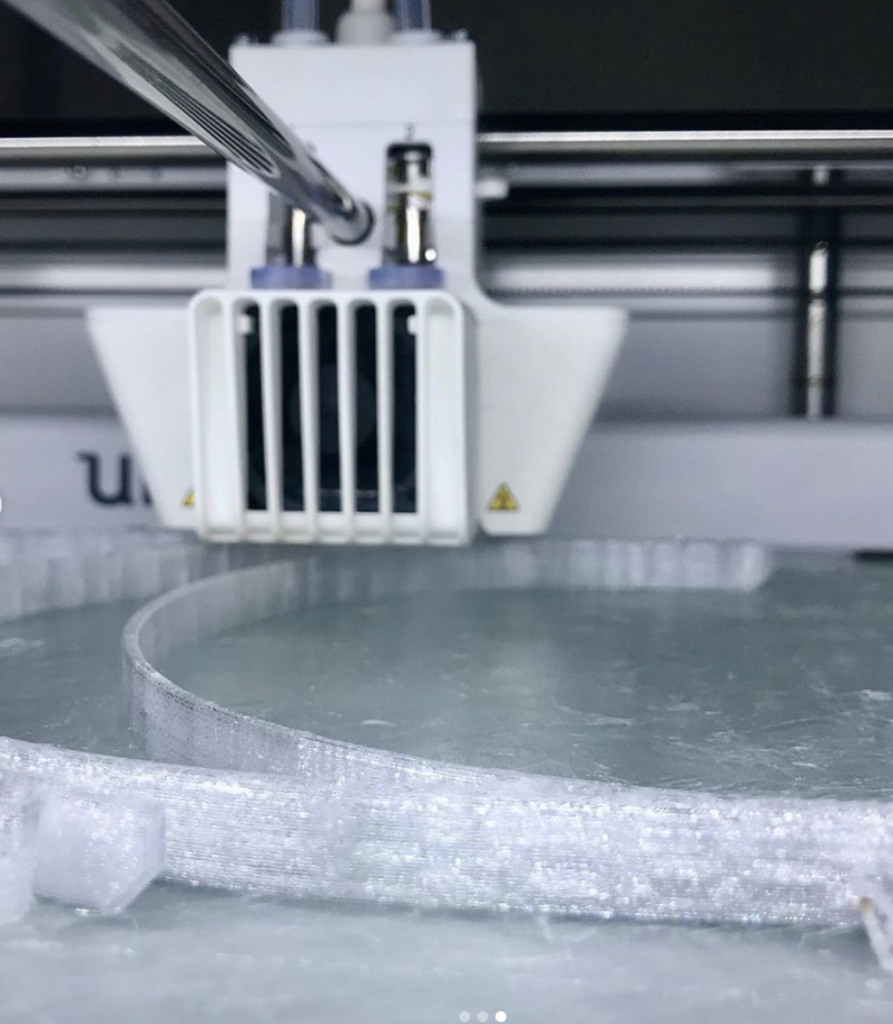Morson Projects provided the University of Salford with additional 3D printers, allowing them to offer immediate provisions to the NHS in essential personal protective equipment (PPE) to fight the COVID-19 spread.
The University of Salford also provided donations of significant quantities of PPE, disposable gloves, safety glasses, lab coats, full body suits and sanitiser to Salford Royal NHS Foundation Trust. As part of this effort, the Morson Maker Space produced over 7000 face shields after widespread reports of PPE shortages.
Dr. Maria Stukoff, Maker Space Director, said at the time:
“It is a real testament to the University and the Morson Maker Space to respond so quickly to address the urgent needs of our local community in this health crisis. I highly commend our technician’s commitment and goodwill to get stuck in to design and print 3D face shields supporting the NHS when it counts most.”
Prusa Face Shield Template
The Morson Maker Space was given special permission from the University to operate during lockdown to make face shields. The team immediately set to work to print a couple of units of the open-source Prusa design (V3) for clinicians at Salford Royal to test. The Prusa file is universally available and is freely used by the 3D printing community to create face shields for frontline workers.
Feedback from Salford Royal quickly established that making improvements to the Prusa design was vital to attain higher comfort levels for NHS staff. Key areas for redesigning the face shields established;
- Improved comfort when being worn for long shifts (10 hours+)
- Increased visor width for better protection
- Optimised design to meet infection control requirements
- A design that could be sterilised between shifts
New Product Design
Feedback from the clinicians highlighted a number of comfort and safety issues with the basic face shield design. The Maker Space team re-designed the face shield to:
- Solve a common comfort issue, the headband incorporated a self-adhesive closed cell foam material attached to the laser-cut PETG to form a comfortable contact point with the forehead.
- Ensure that no gaps existed in the connection of the visor and PETG sheet. This included a ‘fold and hook’ in the lower part to shape the visor without the need for another 3D printed part (as used in the initial Prusa design) and optimised the efficiency of production.
- Ensure that specified materials were used for their ability to withstand sterilising chemicals. Testing was conducted at Salford Royal to ensure they approved soaking the full units overnight to sterilise.
Chris Chapman, Digital Eco-Systems Lead for Salford Royal, said:
“The Morson Maker Space visors are being used in the Intensive Care Unit and are being more widely distributed across the hospital”.
The newly designed shields were very effective – not only in reducing the 3D printing time to create a higher volume of units each day, but these units were shared across the NHS for other hospitals to utilise.
The visors were fully tested by Salford Royal staff and aim to be 90 per cent sterilisable.
Overcoming New Challenges
During the lockdown, the industry was faced with a worldwide shortage of materials needed for PPE. The desired 0.5mm thickness to fashion the visors was selling out on an hourly basis and it was a significant logistical challenge to procure and have materials delivered to the campus. The University were quick to implement new health and safety procedures to keep the Morson Maker Space open while the Maker team implemented a failsafe testing and production technique while following governments guidance for social distancing.
The PPE production for the NHS was a genuine collaborative effort and Morson Projects have been proud to support the maker team by offering our own 3D printers on loan.
Andy Hassall, Associate Director at Morson Projects, shared:
“It has been brilliant working together, sharing equipment and connecting people to solve some difficult challenges and knowing that we’re supporting some great causes during the COVID-19 crisis.”
Chris Burke, Executive Director at Morson Projects, added:
“I’ve been following additive machining technologies since the late 1990’s. The technology had lots of promise but it took a pandemic to make 3D printing “normal”, in fact vital to the medical and care frontline. It has been great to see the technology at the centre of many modes of co-operation uniting many sectors and regions. Thank you for everyone’s support with this small contribution to fight the virus.”
Gordon Murphy, Chief Systems Engineer & General Manager at Morson Projects, commented:
“The visors are well designed and made and their provision has shown a real spirit of cooperation between the University and Industry to meet a need at a critical and distressing time for NHS patients and staff alike.”
Due to this collaboration, the University were able fulfill additional PPE requirements for the Belfast NHS Trust, The Seashell Trust, Willowbrook Hospice in Merseyside, Morson Forces, The Docs GP practice in Central Manchester, Heathlands Village Care Home, The Fed and a pharmacist at a well-known supermarket.
For the Seashell Trust, a UK national charity supporting children and young adults with complex learning disabilities, we adopted the shield design again to suit specific needs of deaf staff and students.
Kate Duggan, Head of Clinical Services, The Seashell Trust, concluded:
“In collaboration with our Lead Nurse, the Maker Space team worked with the Seashell Trust to find solutions to the communications barriers faced by deaf staff and students when wearing face masks. The team were fantastic in coming up with a range of innovative ideas and we have really valued their creative and proactive approach to supporting us at this challenging time.”




